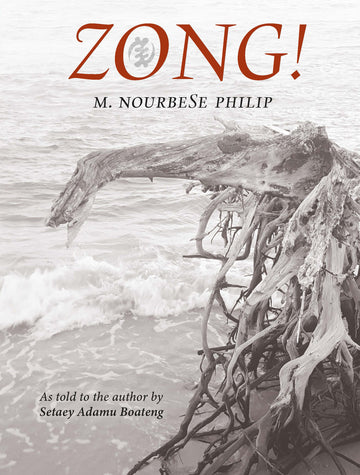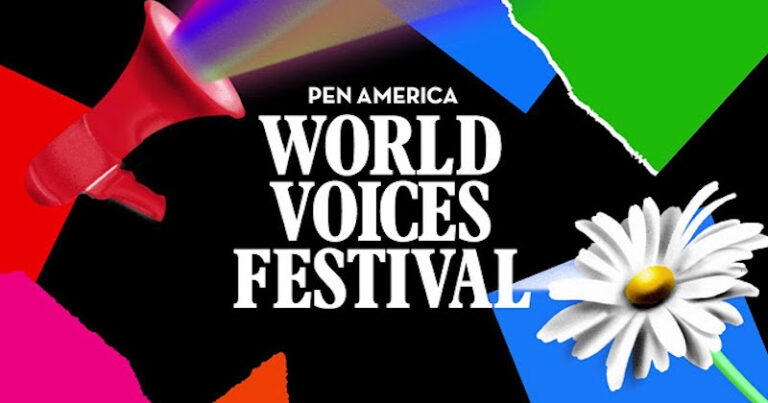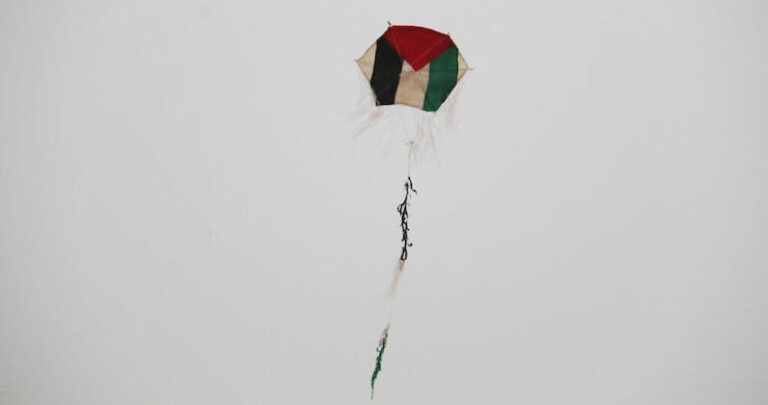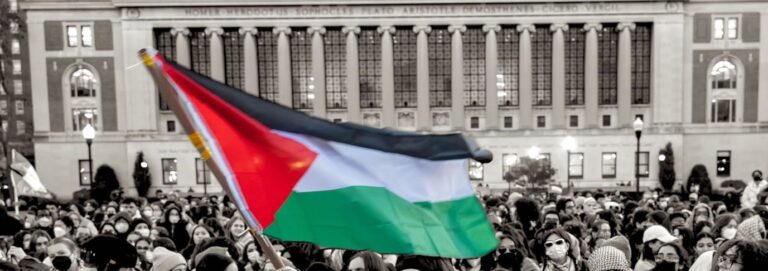m nourbeSe philip first published the book-length poem Zong! As Told to the Author by Setaey Adamu Boateng in 2008. The collection responds to the Zong massacre, a brutal act of violence that occurred onboard the slave ship Zong in 1781, when some 150 enslaved Africans were thrown overboard en route to the Caribbean so that the shipping company might collect insurance. The massacre began on 29 November and lasted for ten days. The only evidence of these deaths can be found recorded in the legal decision of Gregson v. Gilbert, a document that denies the humanity of the dead by withholding names, ages and next of kin. In Zong!, nourbeSe philip constructs her poetry from the compromised language of this legal case, and in doing so interrogates the task of remembrance, asking how we might relate lives, events and trauma in the absence of archival material.
Each year, nourbeSe philip presents a collective, durational reading of Zong!, which takes place within a ten-day period beginning on 29 November. This annual reading and performance of the text allows participants to join the ritual act of collective commemoration.
nourbeSe philip is a poet and writer and lawyer. She was born in Tobago and now lives in Toronto, Canada. In addition to Zong! (2008), her books of poetry include Thorns (1980), Salmon Courage (1983), She Tries Her Tongue; Her Silence Softly Breaks (1988) and Looking for Livingstone: An Odyssey of Silence (1991). She has also written one novel, Harriet’s Daughter (1988), and four essay collections, including Frontiers: Essays and Writings on Racism and Culture (1992) and Showing Grit (1993).
Momtaza Mehri is a poet, essayist and researcher. Her first poetry collection Bad Diaspora Poems was published by Jonathan Cape in 2023.
In 2023, they spoke to one another about the legacy of Zong!, the desire to know, and the many different ways of knowing.
Momtaza Mehri:
You have spoken before about your distrust of language, which is something I share. It reflects my own suspicion of the self-appointed witness. Reading Zong! reoriented my own understanding of what it means to commune with, and defend, the dead. For a long time, I thought to myself that the world of the dead and the ancestors was almost like a foreign country that I needed access to, rather than a place I was always already submerged within. And Zong! was very clarifying for me in that regard. I want to expand on this notion of defending the dead, or communing and sitting with the dead, during this time of ongoing crisis. How does this speak to you today, as opposed to when you were writing this book in the mid-2000s?
m nourbeSe philip:
I was talking about this just yesterday with my class. While the dead of the Zong massacre are honoured in the readings, they also stand in for, as you say, the ongoing-ness of the present, and all the dead. This pushes back against the way Black life in the Western world is cheapened – not only Black lives, but the lives of all those who are perceived to be marginal. I am thinking of the people currently crossing into the US, particularly the children and the very vulnerable.
You asked about the difference between reading and performing. It’s not so much that I perform Zong!, but rather I allow the text to perform me. When I was composing the book I became very aware of a sense in which I was un-authoring the work. I wrote in an accompanying essay, ‘Notanda’, that I was absolving myself of the role of author. This is also reflected in the title, which includes the phrase, ‘As told to the author by Setaey Adamu Boateng’. There was a sense in which I, as the author, needed to stand back and allow the text to do the work, and this has continued over into the performances. I am not a trained performer, but there is a performative aspect to the readings. One of the things I’ve observed – this will be the eighth durational reading of Zong! – in the many years that I’ve been reading it, collectively and individually, is that at the end of each performance, I do not feel sad or, as the Rastas would say, down-pressed. There is a sense with the durational readings, which last several hours, of tiredness and exhaustion, but there’s also a sense of something having been washed out of you, cleaned out of you. I don’t want to say it’s positive, but it’s not negative. It’s as if you can take a breath again to go on. And that’s part of the work that we do as writers: we look at the stuff that the wider community is not ready to look at, and we bring it to them, and they are then able to absorb it in a more integral way, a way that feeds them more.
Mehri:
This touches on the idea of ancestral co-authorship, the idea of being spoken through, of being a conduit through which the story can ‘untell’ itself. As you mentioned, the full title of your book is Zong! As Told to the Author by Setaey Adamu Boateng. Could you speak a little bit more about this notion of co-authorship?
nourbeSe philip:
Let me think of where to start with this. I first read about the court case, Gregson v. Gilbert, in James Walvin’s work Black Ivory. I was shocked by it. I had practiced law for seven years, and legal training here in Canada requires that you to read a lot of cases. You’re reading case law over a period of three years: criminal law, contract law, property law, and so on. And often you’re tracking particularly important cases as they go up to the appeal level. And, as with Gregson v. Gilbert, they’re reported in law journals.
When I first saw the two-page decision reporting on the deaths, the killing, the murder, the massacre, of some 150 people, I was astonished. I thought, two pages? I couldn’t believe it. So, I photocopied it and took it away. And initially, when I came back to the text, ready to work on it, I restrained myself to using only the words that appeared on the page – about 500 different words.
But because of that experience of studying law and reading through the cases that I mentioned earlier, I was well aware that what happens as cases move to the appeal level is that all the stuff that makes us human, all the messy aspects of our lives is squeezed out – extruded, if you will – as it goes up to the highest court, be it the Privy Council, or the Supreme Court of Canada, or the US. For instance, with Roe v. Wade, the well-known American case on abortion, we don’t know who Roe was, where she lived, who her parents were, what her background was, and so on. We just know those two names: Roe and Wade. I was convinced that, locked within that two-page report were all the stories of those on board the Zong, including the pain, the suffering, the longing for home. It was all there. The challenge was how to access it. It took me a couple of years to release myself from the rules I had set myself and to allow myself to ‘break and enter’ the text. So, I started making my own dictionaries in which I listed all the words in Gregson v. Gilbert. I would then select a word, the mother word, if you will, and find words within that word. This is really important, as it links to what you’re asking me. I would look at these lists of words, the words from the case report and the words that they had generated or that they contained, and words would coalesce together almost as if they were floating on water. I would then write these phrases in the margins of the dictionaries. That is where the poem wrote itself, in the margins of the dictionaries. It was as if I was scooping them off the surface of the sea.
As a writer, I always say that there are always at least two stories, or two poems you’re working with: the one you want to tell, and the one that has to tell itself through you. And what that entails is putting the ego out of commission. That’s a lifetime struggle for writers and poets. How do you step aside? Because you also need your skill to bring it – the poem or story – to fruition. For instance, in Zong!, there’s a white, male voice that kept cropping up, and I didn’t want the voice in there. I thought that we had heard enough of those types of voices. I would probably have excised his voice, if I had been working with the text in the way I usually did. However, because I was faithful to the rule I had set myself that I would only use the words of the text of the case, and what they had generated in the dictionaries, I had to allow that voice to surface and be present. But the person to whom that voice belonged offered a gift: at the end of the work, realising that he had sinned, that he had crossed a line, within his own moral code, he comes to understand that his redemption could only be had by joining one of the enslaved who jumps overboard. I think that act of self-inflicted death also signals that the way of life and the system he represented has to come to an end for something new to be born. I think of systems that allowed for the murder of 150 people to collect insurance monies some three hundred years ago, as well as the unlawful deaths of George Floyd, Eric Garner and Sandra Bland in our current time period, and I see how they are linked.
When I sent the first version of the manuscript (which was initially written in a more conventional style and not as it now appears) to the publishers, they told me I had to cut it by 25 per cent. It was too long. I didn’t know how to do it. I sent it to a couple of colleagues, and they couldn’t see me doing that and keeping the integrity of the work. I put the manuscript aside and travelled to Ghana with a friend where we did a summer course in the arts at the University of Ghana. I had felt a need to ask permission to bring the voices of the dead forward and thought this would be an opportunity to do so. While I was there, a Ghanaian colleague at the university, who was himself Ewe, introduced me to some traditional priests from his culture and we talked about the massacre, my text and my need to ask permission. They consulted and prayed to the Ancestors. On my return to Canada, I began to work on the manuscript with a view to shortening it, and the idea suddenly occurred to me that I should spread the text out. Once I did that, strangely, it shortened itself. It seems almost counter-intuitive that by spreading it out, the manuscript took up less space and I didn’t need to cut it. There was one rule and one rule only that governed the form of the four sections that come after ‘Os’, the first section that uses the words as they appear in the case report: no word, cluster of words, phrase or fragment could come directly under another in abutting lines; the word or fragment always has to seek the space above as if seeking breath. As those who drowned couldn’t.
Mehri:
When I read it the first time I found your inclusion of the white male subject to be quite jarring, because I really wasn’t expecting that to be in tandem with the ancestral spirit that courses through the collection. To me, I saw it as part of a wider tradition of Caribbean writers and Caribbean poets’ engagement with those who constructed this idea of the Caribbean and those who were born or reconstituted in its crucible.
nourbeSe philip:
There are two things that I want to say about this. One is the tradition of the slave narrative, in which a white person usually writes the narrative on behalf of the enslaved or formerly enslaved. What I wanted to do here was reverse that – turn it on its head: Zong! by m nourbeSe philip, as told to the author by Setaey Adamu Boateng. Yes? So, as you mentioned, with this white male voice, I turn that trope on its head. It’s the ancestor who is now telling the story, and some of it is told to her by the white man. She filters the story now, which is a reversal of what traditionally happened where it’s the formerly enslaved who is telling the white person the story who then presents it to the world. So that was one aspect of it. The second aspect that came to mind is that this is a text that has to contaminate us. We’re all contaminated in different ways by this horrific experience. And so having that European voice in there is one of the aspects of that contamination.
Mehri:
It’s a nod to the impossibility of returning to this notion of origins, or this sterile purity. Contamination is inevitable, and it’s also something that can’t be reversed.
nourbeSe philip:
Absolutely, absolutely. I’m sure there are some people who feel shocked by that idea . . . ‘We are victims. How could we be contaminated?’ But if we bring it to contemporary times, we’re all contaminated. I am contaminated, sometimes by virtue of where I live and the choices offered to me in terms of what I buy, or how many children have suffered producing my cell phone, or the coffee I drink, and so on. As you say, this contamination, it’s ab initio, ‘from the beginning’. How then do we work with that?
Mehri:
The first time I heard of the Zong case was through your collection, and then I started to see it everywhere. I was reading about it in different places, but I knew early on that your text had left the most unsettling, lasting impression on me.
The date, 1781, serves as an important frame. What was happening at this moment? Why the pervasive fear of rebellion, the spectre of African insurrection, onboard the ship? When you think of the turmoil occurring in Jamaica at that time, alongside the American Revolutionary War, and the Inca rebellions being waged against Spaniard colonisers – the ship becomes part of these wider historical convulsions. Of course, there are also the Industrial Revolution’s early splutters. Your text is expansive. Its glossary even presents words and phrases pulled from the various languages spoken on the ship. The ship is roiling with all kinds of difference, right down to the animals onboard.
nourbeSe philip:
I think the stories that cannot yet be told must be told, can only be told, by un-telling. We don’t know what happened on board that ship. Yes, we have these bits and pieces, but we will never know in its entirety. There is a way in which Western scholarship and knowledge is all about knowing, down to the last absolute detail, which is perhaps important in fields like the sciences, but this desire to plumb the depths of everything has also been applied to peoples and their cultures. The last few days I have been thinking about the idea of opacity. Is there something problematic about allowing this opacity, in not needing to know? I think that Western scholarship and thinking has emphasised one form of knowing, but there are other ways of knowing. Women know this. African peoples, Indigenous peoples of the world, know this: that there are other ways of knowing.
Mehri:
Knowledge doesn’t always have to be used to create taxonomies.
nourbeSe philip:
Absolutely. We’ll never know, but one of the things I say to my students is that perhaps what happened onboard the ship was language. We know this, don’t we? All those people speaking different languages, having to find ways to communicate across the barriers of language – language being done and undone, made and unmade, and lest we forget, there was also the language of the animals on board. So much language, so little comprehension, so many sounds and so much force.
There is the language of plants and animals, the language of grunt and groan. When I read from the poem ‘Ferrum’ [collected in Zong!], the language has by that time in the work totally deteriorated into phonemes and vocals. Underneath that, I hear another language floating – another mother tongue perhaps. As I read it, I can hear little stories, bits of conversations, prayers, chants, cries, and mumblings. The work was trying to critique the very word you use there, this taxonomy. This approach to life as an exercise in taxonomy, the compulsion to label everything, name everything. In many ways, that was what led to us to being on board that ship.
Lately, rather than calling myself a human being, I say, ‘We are beings who are human’. It’s an attempt to understand how we occupy this world, and how we need to occupy this world differently so that we can save ourselves. If I am a being who is human, there must be other beings, albeit not human. But we are all being. I think the earth is going to continue with or without us, but how can we save ourselves at this liminal moment, when we are poised on the brink of catastrophe?
Mehri:
The original name of the ship was Zorg, the Dutch word for ‘care’. Through a repainting error, the name Zong stuck. That has long struck me. We can never really know what happened on ships like Zong. But at the same time, I’m always thinking about how the kidnapped cared for each other, the fellow feeling they shared. How did the adults comfort a child who didn’t know what was happening? How did people seek solace in each other, despite speaking different languages, despite being strangers? The conditions were horrific, but I find myself thinking about these precious moments of care. What does writing with care look like to you?
nourbeSe philip:
As you were talking, I was thinking about a reading we did last week, a collective reading over Zoom. There were about twelve of us. Technology, it’s so bizarre. What we found out, for instance, is that if you and I are both talking on Zoom, it mutes one of our voices. Fortunately, the technician was able to instruct us in how to change the settings so that all the voices could be heard together. Of course, when you’re reading, the camera is on you, and you can’t look at the screen at the same time. Afterwards, I had this sense of being involved in something very intimate. Maybe this was because we weren’t looking at each other, just wearing headphones and only hearing the voices in our heads. This intimacy disturbed me. We associate the word ‘intimacy’ with things that are positive and caring. It seemed disturbing to think about this adjective alongside this set of events, this massacre. How much more intimate can you get than lying, probably naked, next to another being who doesn’t speak the same language as you? Feeling their breath on the back of your neck. You’re feeling, you may be feeling, their urination, their waste. It lends new meaning to the idea of intimacy.
Mehri:
I appreciate your work for the pathways it opens for those of tracing other, oceanic routes. It’s a mode of thinking which refuses to come up for air, lingering amid the lower decks.
A love for African people shines through in your writing. You’re not one of those writers who speak over our shoulders, cynically trying to sell us something. You’re looking at us between the eyes. Your commitment to unmooring your readers is an act of love. That’s how it feels to me.
When I first encountered Zong!, it read like a lamentation. That word reoccurs in many of your interviews. I am reminded of a passage from the poem ‘Hands’ by Jamaica-born poet Safiya Sinclair:
‘Out here the surf rewrites our silences.
This smell of ocean may never leave me;
our humble life or the sea a dark page
I am trying to turn . . .’
The sea is a dark page to be turned, and that seems to be a life’s work for so many of the poets I admire, including you. My own work is concerned with gulfs of various kinds. Do you feel part of a community of writers on a pelagic mission of sorts, standing at the edge of Derek Walcott’s ‘grey vault’, facing the sea?
nourbeSe philip:
Absolutely. And the writer that comes to mind for me is Kamau Brathwaite and his idea of tidalectics.
The reading I did last night was of some older poems that I had begun working on, which I would say are the matrix of my three collections – She Tries Her Tongue, Looking for Livingstone and Zong! They’re all about the islands, their culture, and the loss that occurs on leaving them. The poems question whether islands can mourn. They have been part of this painful and difficult history of empire, ‘Oh islands of grave-black women / and grief’. They/We feel what it means to perch on that edge, near the tide as it washes in and out, and what that brings and what it takes away. For me, it’s this longing to return to what the Quebecois writer Max Dorsinville talks about. ‘Le pays natale’, this longing to return there, whether it be the island or Africa, along with the simultaneous sense that you can never fully return.
How do you stand at the edge? In the aftermath of the George Floyd murder, and the uprising, one of the things I gained (as all these white companies and people were coming forward and testifying and changing things) was an awareness of those places within myself where I had just shut down. Shut down in the sense of ‘I won’t do that, because chances are, they’ll tell me no’. I don’t mean in terms of my work. I feel fearless when it comes to my work. But as for negotiating these white spaces . . . Do I want the hassle today? I think I’m gonna pass. I’m sure you know what I mean. I became very aware, and almost upset with myself, that I had shut down in these ways.
How do you stand at the sea’s edge and write about this expanse of terror and rebirth? Let me say this: maybe if I truly allowed myself to feel that horror, I could not have written Zong!. Now that it’s written, I feel it surfacing, this horror of being so intimate with someone, with something that is alien, that you don’t know. And yet, you have to go on. We know about generational trauma. We know about epigenetic memories. We pass it on. I think our work now is to find spaces where we feel steady enough to look at that horror, to witness it. And then the question: who bears witness for those who are witnessing it?
Mehri:
That’s something else that makes Zong! so uncommonly generous. It allows for that utterance, even as it withholds. Sifting through the psychic and material wreckage of slavery without using the suffering of the dead to impose a redemptive reading. You sidestep the tendency to ventriloquise the dead.
nourbeSe philip:
I don’t want to know. Because I know. It is in my integuments. It’s in my body. But I don’t have to know, as I said, in the way the West wants to. The point you’re making is so important. Western culture, particularly entertainment culture, is so invested in seeing Black suffering. It’s so invested in seeing the blood and the gore. It’s almost pornographic at times.
Mehri:
Even when it shows the suffering, it flattens it entirely, obliterating any kernels or rigours of intimacy.
That’s a whole other question, really. Can you ever faithfully represent something like slavery? Cinematically, at least, it’s been a series of failures. Writers have veered closer to the bone.
nourbeSe philip:
It is the story that can’t be told. But it must be told. That’s the tension.
Mehri:
Your work is often included in the Black Canadian canon. I’m aware that these categories don’t leave for much breathing room. I have my own reservations about this incoherent umbrella of Black Britishness that’s currently being entrenched and commodified. If we’re not careful, curriculum-isation becomes another form of pacification. Do you feel part of a national canon?
nourbeSe philip:
I certainly don’t feel that. I think if I had begun writing in either the UK or the US, I would have met with different challenges. Every time I go to the UK, I wonder how Black folks survive there, under the crushing weight of that history and culture. How do you make a space in that?
Mehri:
You’ve made me think of the ‘Blaxit’ movement, which is basically diasporic Black people documenting their relocation back to Africa and the Caribbean. Their exploits, which they share online, are fascinating. In a cultural watershed where our hyphenated identities have never been more celebrated, when Black Britain™ is soaring high as a brand identity, I’ve never witnessed so many young Black people desperate to leave an increasingly unlivable country. This tension was palpable to me years ago, but acknowledging it wasn’t popular with the zeitgeist then.
There’s one video of a self-proclaimed returnee I often think about. She’s a south Londoner who’s asked what she appreciates the most about moving to Gambia. If I walk down the street singing or dancing, she answers, nobody thinks I’m crazy. Her response didn’t centre the material. Her relief was at the level of the spirit. She was finally able to emote without being constrained.
nourbeSe philip:
In Canada, I really had the sense of being on the frontier of something. The frontier as an idea is so linked to colonial tropes, but it was like I was on the frontier, and behind me was the hinterland. I could investigate and initiate. I didn’t have that weight of American or British history sitting on my shoulders. The work I’ve done could only have been done in Canada. Still, I don’t consider myself part of the Black Canadian canon. If I’m going to locate myself anywhere, it’s the Caribbean, in its poetics of interruption. Everybody in the Caribbean has been interrupted. African people, Asian people, Europeans, the Indigenous. It’s like tectonic plates crashing up against each other.
Mehri:
Caribbean poetry and philosophy doesn’t lend itself easily to categorical enclosures. That sense of looseness has always appealed to me.
nourbeSe philip:
Absolutely. My poetics come out of that archipelago, that aching curve of islands containing so much grief and potentiality, home to all those world thinkers we are still contending with: Sylvia Wynter, Kamau Brathwaite, Derek Walcott, even V.S. Naipaul. It’s an amazing place.
Mehri:
I’ve been thinking about the experiments and choices you make with form: underwriting or murdering texts, throwing articles, prepositions, conjunctions overboard, jettisoning adverbs. Words are dispersed and disaggregated. They stretch and stumble. You let them trip over each other. How did Zong! change your relationship to form? Or was it a journey you were already on by the time you wrote it?
nourbeSe philip:
I was on that journey already, in the island poems I referenced earlier, writing these huge poems about history. Upper case History, I called it. Which I juxtaposed against small poems about intimate things: brothers, sisters, mothers, and so on – in a word, family. Lower case history. These two forms were supposedly working within and against each other. But the large poems got too big for me, and I had to put them aside. What they taught me was how to take up space on the page. It’s something I’ve written about in some of my essays – for example, in ‘Dis Place – The Space Between’ – that as women, we have been conditioned not to take up space, and this can affect how we write. These poems gave me a sense of how to stretch the line length. That’s what I was working with when I put them aside. I was pushing each line to its maximum length before I had to break it, or it broke or collapsed under its own weight before moving on to the next line.
There is also the univocal versus the polyvocal. What I understood I was saying in Zong! was that polyvocality is important to us as women and as Black folk because the poems are impossible to read with one voice – you have to call the community to read it together. Zong! just explodes into this crescendo, this cacophony of voices. A cacophony that is harsh and beautiful and that holds us all. Always.
Mehri:
The final question is really just about the afterlife of Zong! and what it has given you and others. What are you most proud of?
nourbeSe philip:
It’s given me an understanding of the need to trust the ancestors who walk with us. Often when I begin a performance, I don’t know what’s going to happen. I don’t know where I’m going to land in the text, and when I land on a place I have to enter the particular vortex of those words, or that phrase, but there’s always a sense that trust will take me through.
You know when you hike, you find these markings on trees called ‘blazes’. You can use those markings to navigate. I’m happy that Zong! has become a blaze for some people, pointing them in a certain direction.
 Zong! by m nourbeSe philip was reissued by Silver Press in 2021.
Zong! by m nourbeSe philip was reissued by Silver Press in 2021.
The post In Conversation appeared first on Granta.











 Bengali (Bangladesh) ·
Bengali (Bangladesh) ·  English (United States) ·
English (United States) ·